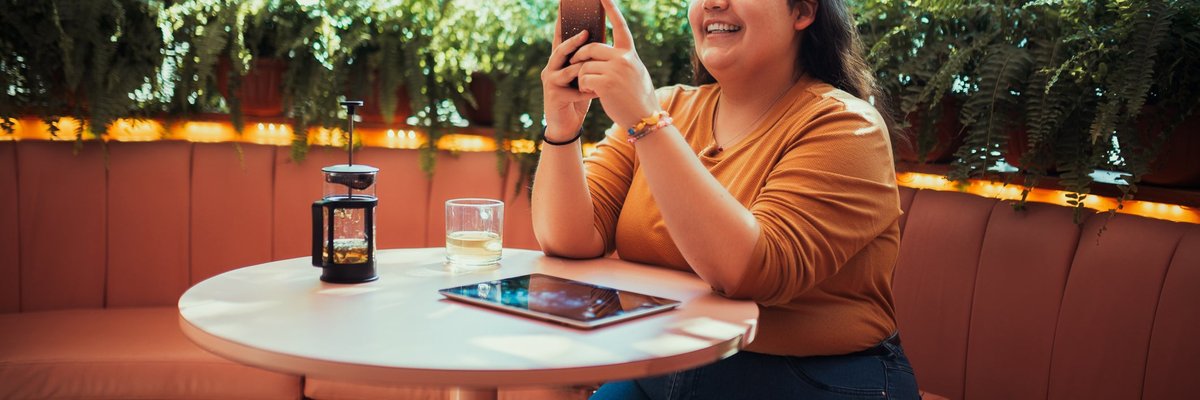Here Are 5 Moves I Make to Avoid Overdrafting My Bank Account
KEY POINTS
- Part of good money management is ensuring your bank accounts remain funded.
- Leaving an extra bit of money in the account can help you avoid overdrafts.
- Opt in for overdraft protection and account balance notifications, and check your balance frequently so you know where you stand.
Having a bank account is unquestionably good for your finances -- it gives you a safe place to keep your money and an easy way to pay your bills. But it's not enough to just have the money in the bank; you also need to stay on top of how much you have, because if you accidentally spend more than what's in the account, you'll incur a headache.
Some banks have done away with nonsufficient funds (NSF) fees (the amount you're charged when you overspend your account), but a lot more have persisted with them, and they'd be very happy to ding your account when you overdraft, putting you further into the red. I've got a lot of experience avoiding overdrafts -- here's what I do to keep my checking account in the black.
1. I keep an extra cushion
In my long, long history of living paycheck to paycheck, I always aimed to keep at least $100 (and ideally, $200) in my checking account once my bills had been paid. Sometimes, I succeeded -- and other times, I sweated it out until payday with less than $100 (or less than $50) and hoping that no surprise bills popped up (I also didn't have emergency savings in those days).
These days, thankfully, this is no longer my reality, but I still don't want to come close to overdrafting my account. To that end, I keep a larger cushion in the account -- $500 to $1,000. Keeping extra money in your checking means that money won't grow with interest like it would in a savings account, but the peace of mind you'll get is worth it.
2. I get low-balance alerts
I'm a big fan of mobile banking apps, and the bank I keep my main checking account with is a big national bank with a stellar app. One of the options within the app is the ability to set up alerts for important information, including a low account balance. I have mine set to alert me if my checking balance drops below $100. If your bank offers this, I recommend signing up -- and while you're at it, opt in for alerts about suspicious activity in your account, as this can help you stop fraud in its tracks.
3. I check my balance frequently
Just in case the previous two measures aren't enough, I'm also in the habit of logging into my bank account and seeing what's going on there frequently. I don't check daily, but I aim to have a look every couple of days. This helps me stay on top of my finances in a couple of ways. I get to see what my balance is, sure, but I can also make sure that money for bills I've paid actually leaves the account.
4. I opted in for overdraft protection
Some banks allow account holders to sign up for overdraft protection via a linked account. I did this several years ago, when I opened a linked savings account to go with my checking. If I accidentally overdraft the checking account, money will be sent from the savings to cover it. If you can sign up for this, it's an extra way to ensure your peace of mind about overdrafts.
5. I maintain a paper record of bills paid
Paper checks seem to be going the way of the dodo; according to GOBankingRates, just 55% of Americans wrote one in 2022. I am one of those Americans (I think I wrote maybe two checks last year?), but I don't keep track of my checking expenditures by way of a traditional checkbook. Instead, I have a spiral notebook that functions as one. Every payday, I make a note of my checking account balance and write down all the money leaving the account to pay bills and be funneled to my high-yield savings account at a different bank. By doing this math, I know how much money is supposed to be left in my account. So if I log in and see that the number is off, I know to investigate further.
Overdrafting your bank account can be an expensive headache, and if you do it too often, your bank could report you to ChexSystems, thereby making it extremely difficult to open new bank accounts in the future. If you're frequently unsure of your balance and always teetering on the edge of overdraft, consider implementing some of my moves for your own bank account management. An overdraft fee can put you even further into the hole, and nobody needs that.
Our Research Expert
We're firm believers in the Golden Rule, which is why editorial opinions are ours alone and have not been previously reviewed, approved, or endorsed by included advertisers. Motley Fool Money does not cover all offers on the market. Motley Fool Money is 100% owned and operated by The Motley Fool. Our knowledgeable team of personal finance editors and analysts are employed by The Motley Fool and held to the same set of publishing standards and editorial integrity while maintaining professional separation from the analysts and editors on other Motley Fool brands. Terms may apply to offers listed on this page. APYs are subject to change at any time without notice.



